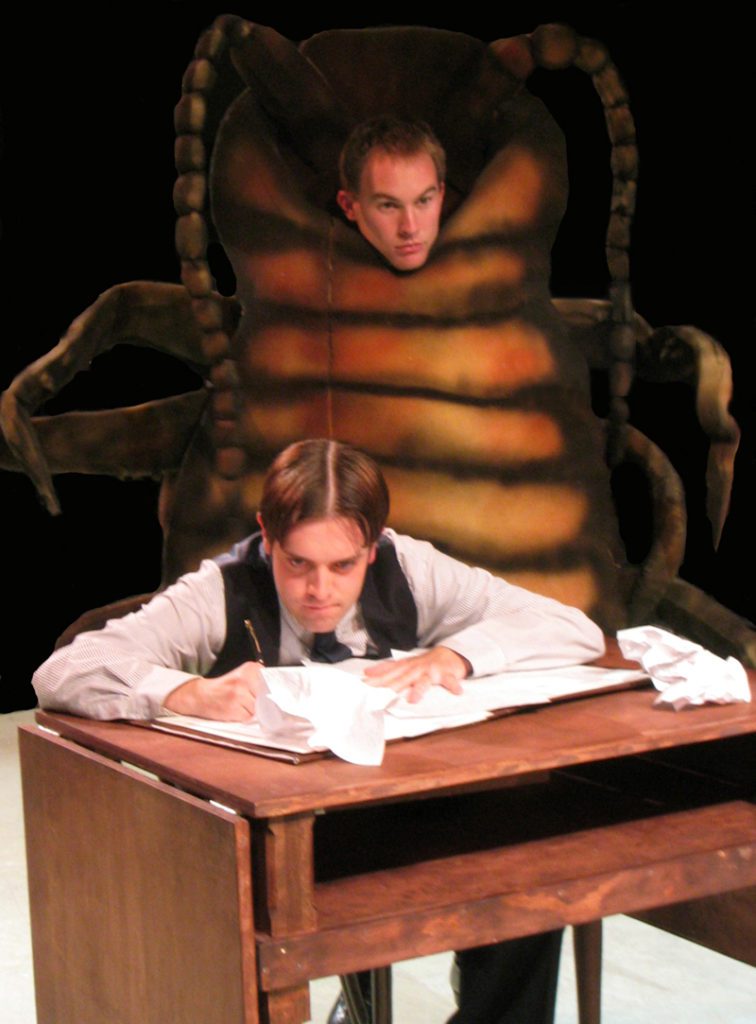More frivolity onstage occurs during the 90 minutes of Kafka on Ice than Franz Kafka probably saw in his entire life.
The socially maladjusted Kafka comes in for Buntport treatment in an original show that weaves together Kafka’s life; his most famous story, The Metamorphosis; and an ice capades show.
If this isn’t the highest of Buntport’s achievements, it’s because the themes of the play never quite mesh with its presentation, delightful though it may be. Company members awkwardly, often hilariously, skate their way across a green synthetic rink without ever drawing parallel between the ice and the wintry discontent of much of the author’s life.
As Kafka, Gary Culig tamps down his often manic, childlike persona to capture the internalized, sickly and emotionally thwarted man who died at 30 of tuberculosis with relatively little fame. It took his longtime friend, Max Brod (Brian Colonna) – who overrode Kafka’s last wishes and published him posthumously – to turn a man into an adjective for a world filled with threatening, anonymous forces.
The play opens with the Czech author bent over his writing table under a bare bulb with the piped-in disconcerting sound of a pen scratching (a sound that, in one of the play’s most clever developments, later resembles that of a fidgeting insect).
There are scenes throughout that bring new levels of invention to Buntport’s repertoire. Kafka’s first sexual experience is dramatized as a silent film, complete with flickering lights, title cards and Erin Rollman clumsily skating in for romance.
Less original, but fun to watch, is the representation of the academic debate over just what kind of insect Gregor Samsa becomes in The Metamorphosis, a beetle or a roach. A microphone drops from the ceiling and a boxing match ensues as Colonna and Evan Weissman, insulated by huge foam insect costumes, battle it out until they fall on their backs.
Because he died so young, Kafka’s life was told by others. Buntport gives too much time to the opportunistic diarist who sold his memories of Kafka, and never quite draws the connection between the writer’s overbearing father and his writing. And while we see a series of failed love affairs – mostly with women played by Hannah Duggan – we don’t get much insight into why Kafka was so isolated.
In fact, here the highest peaks are themselves isolated moments, as when Kafka’s letters are projected into luminous swirling script around the theater, or the ridiculous ice pas de deux in which Culig skates in his oxfords. A death scene in which Kafka sings like Angel in Rent just seals the case: Buntport has a lot more fun with his life than he did.
-Lisa Bornstein, October 22, 2004, Rocky Mountain News
